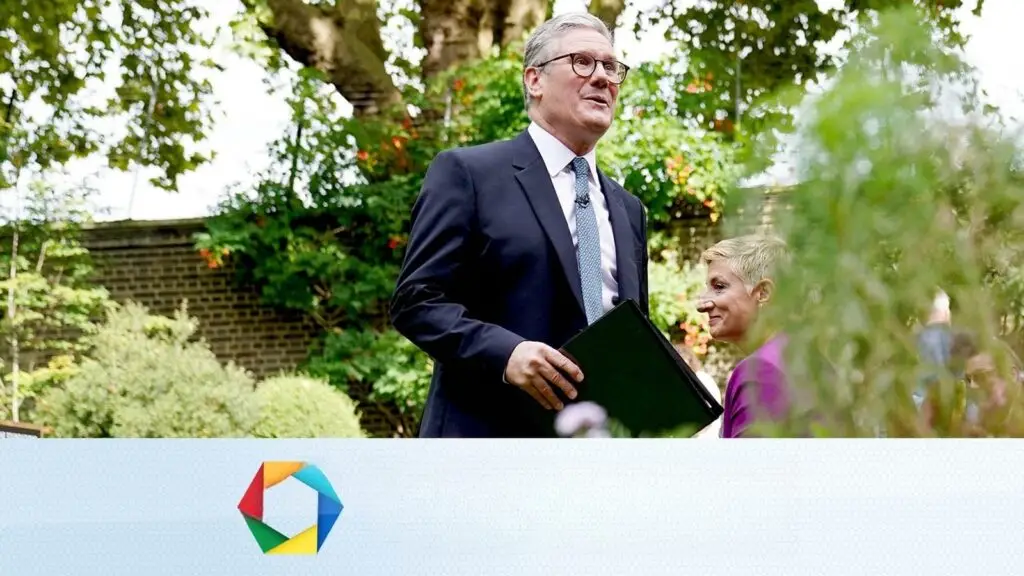Labour reaffirms its commitment to not raising national insurance rates amidst the economic challenges facing the UK. The decision reflects Labour’s campaign promises.
Lucy Powell, the House of Commons leader, highlighted the fiscal difficulties, including the recent £22bn budget shortfall discovered after taking office. She discussed the upcoming legislative initiatives and controversial policy shifts.
Labour’s Stance on National Insurance
Labour party has reiterated its commitment to not increasing national insurance rates. The leader of the House of Commons, Lucy Powell, confirmed in an interview that national insurance, income tax, and VAT will remain unchanged. This stance aligns with Labour’s promises during the election campaign. ‘We stand by our election pledge,’ said Powell, emphasising that these tax rates are off the table for increases.
Powell noted that the UK is currently facing a ‘difficult economic situation.’ The economic policies and decisions, particularly surrounding tax, will be addressed in the upcoming budget by the Chancellor. The specifics about other potential tax changes were not disclosed during the interview.
Reduction in Winter Fuel Allowance
The decision to withdraw the winter fuel allowance from some pensioners has been described as ‘very difficult’ by Commons leader, Lucy Powell. She explained that the means-tested change was necessary due to an underestimated fiscal deficit. Powell indicated that this policy ensures the poorest pensioners continue to receive support, while wealthier pensioners will no longer qualify.
Labour discovered a £22bn ‘black hole’ in the budget upon taking office, necessitating stringent measures. This deficit includes nearly £7bn underfunding in the asylum system, a figure previously unacknowledged by the former government.
Addressing Fuel Duty Queries
When quizzed about fuel duty in the forthcoming budget, Lucy Powell reiterated that discussions and decisions on taxes such as fuel duty are under the purview of the Chancellor. Powell stressed that despite facing challenging economic conditions, the Labour party remains dedicated to its election promises.
Policies on Smoking Regulations
Lucy Powell also discussed Labour’s plans to impose stricter smoking regulations in certain outdoor areas. She assured that the hospitality sector’s concerns would be considered thoroughly and that any new measures would be developed in full consultation with industry stakeholders.
Powell underlined that the Labour government shares a collective ambition to make Britain smoke-free. However, she emphasised that any legislative changes are still under review and will be handled cautiously to balance public health needs and economic impacts on small businesses.
The proposed smoking bill has not been finalised, and actions will be based on full engagement with affected parties.
Packed Legislative Agenda upon Parliament’s Return
As MPs return to Parliament, Lucy Powell has outlined a packed legislative agenda. This includes bills focusing on renters’ reform and regulating water companies. The Labour government aims to address pressing social issues and improve regulatory frameworks.
Key initiatives include bringing rail operators into public ownership and imposing a fiscal lock to ensure economic stability. The government also seeks to bolster workers’ rights, enhance tenants’ rights, and ensure water companies are accountable.
Efforts to tackle the energy crisis’ root causes and regulate MPs’ second jobs are also on the agenda. These comprehensive measures reflect Labour’s commitment to systemic reform and social justice.
Analysis of Budgetary Challenges
Liberal Democrat leader Sir Ed Davey criticised the withdrawal of the Winter Fuel Payment as a significant error by the new Chancellor, Rachel Reeves. This decision has become a major domestic challenge for Prime Minister Keir Starmer and his government.
Labour has utilised its initial period in office to attribute the country’s financial difficulties to the previous Conservative government. Two major financial gaps identified include a significant shortfall between planned expenditure and projected revenue and borrowing, and a more surprising £22bn deficit in current year finances.
As MPs resume their duties, the Labour administration is expected to navigate these financial challenges while fulfilling its reformative agenda. Policymakers must balance fiscal responsibility with the need to implement effective social and economic reforms.
Political Commentary and Public Reactions
Political analysts indicate that the budgetary and policy decisions will significantly shape public perception of the new Labour government. The measures taken so far underscore a willingness to make tough choices amidst a challenging economic landscape.
Public and expert opinions remain divided on the effectiveness of Labour’s approach to addressing the fiscal deficit and ensuring social welfare. The coming months will test the durability and popularity of Labour’s policies and governance.
Labour’s commitment to its election promises, despite the economic difficulties, will be closely monitored as Parliament deliberates on these critical issues.
Labour’s firm stance on national insurance and other economic policies aligns with its election promises. The government faces significant budgetary challenges, which require tough decisions and strategic planning.
The upcoming period will be critical for Labour as it navigates policy implementation and fiscal management to meet public and political expectations.

